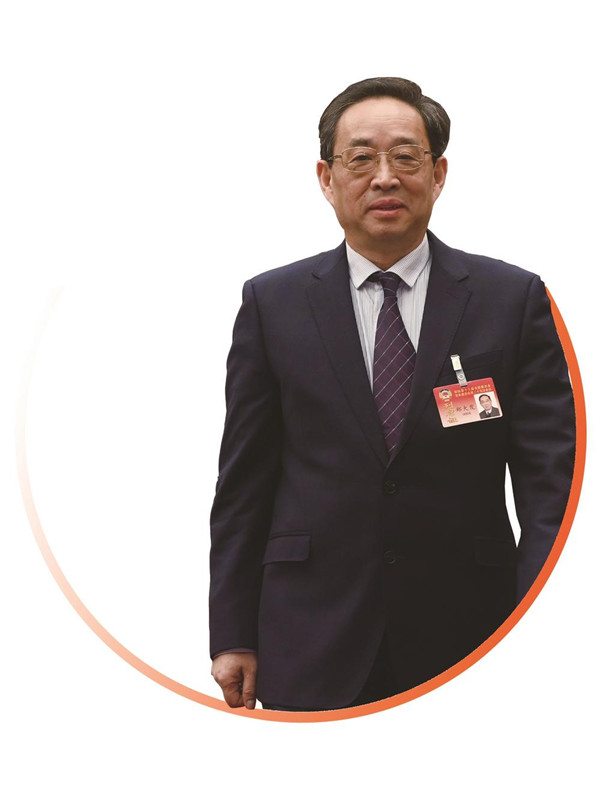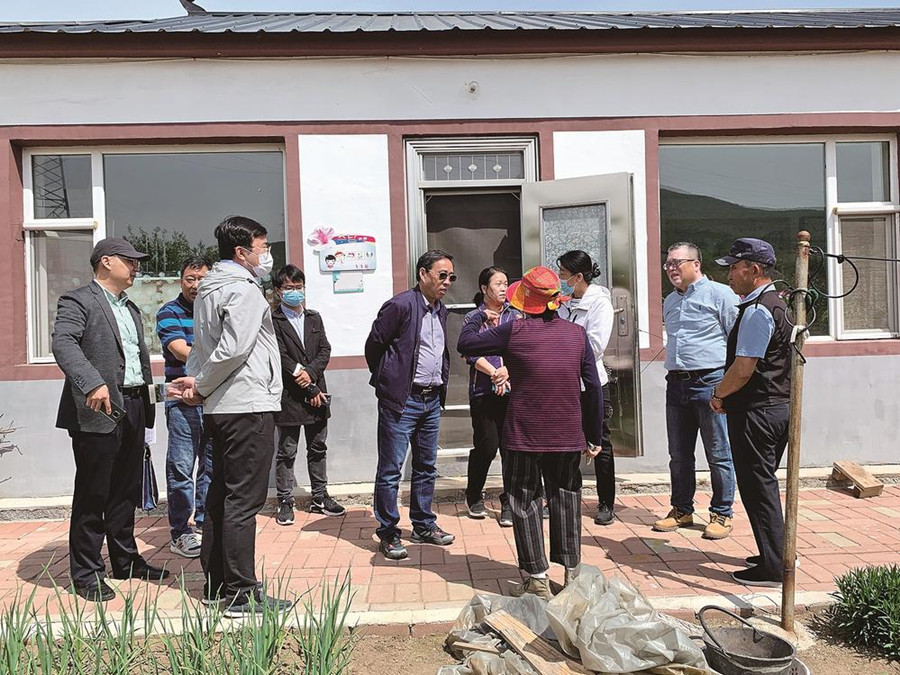Zheng Dafa: Making unremitting efforts for ethnic unity

Zheng Dafa is a member of the National Committee of the Chinese People's Political Consultative Conference (CPPCC), a research fellow at the Institute of Modern History, the Chinese Academy of Social Sciences, and a Distinguished Professor of Hunan Normal University. [Photo provided to cppcc.gov.cn]

In May 2021, CPPCC National Committee member Zheng conducts surveys at the home of a fellow villager of the Korean ethnic group in Hunchun, Northeast China's Jilin province. [Photo provided to cppcc.gov.cn]
"Being a member of the National Committee of the Chinese People's Political Consultative Conference (CPPCC) means affirmation of my own work ," said Zheng Dafa.
No matter the task, whether that be making proposals, conducting surveys or working at the grassroots level, Zheng always holds the belief of pursuing ethnic unity and progress.
Strengthening ethnic unity of Chinese nation through reading
At 2:30 pm every day, Zheng, head of the reading group of the 10th online reading activity of the CPPCC National Committee on "Chinese civilization and national culture", shares introductory articles on the proposal, development and formation of the concept of the Chinese nation.
Since Sept 1, 2022, he has been responsible for the work for more than four consecutive months, sharing 140 articles of more than 900,000 characters.
He also organizes for CPPCC members and experts to gather at night to discuss major theoretical and practical issues in the ethnic field, paying particular attention to the sense of community of the Chinese nation from the perspective of history and culture.
Since the launch of these reading activities in 2020, Zheng has undertaken the task of guiding reading in several reading groups, focusing on ethnic work, especially ethnic work in the new era.
"It is our choice in terms of our own research fields. The choice is closely related to the researchers' own political concepts and cultural concepts. I would like to combine my academic research with politics and reality, making contributions to serve the Chinese dream of the great rejuvenation of the Chinese nation," he said.
Why is he so energetic and passionate?
"I am dedicated to promoting exchanges and integration among various ethnic groups for the realization of the Chinese dream of the great rejuvenation of the Chinese nation," he said.
Conducting research, investigations and consultations on ethnic work
Over the past five years, Zheng has participated in important research and consultation activities organized by the Committee on Proposals and the Committee on Ethnic and Religious Affairs of the CPPCC National Committee.
In 2021, Zheng took part in survey in Liangshan Yi autonomous prefecture, Southwest China's Sichuan province, which used to be one of the largest contiguous poverty-stricken areas in the country.
When the survey team came to Butuo, a county of the highest poverty incidence in the past, in the hinterland of Daliang Mountain, Zheng found that the county had changed a lot. Villagers in impoverished villages that are not suitable for living have moved to concentrated settlements and are now living in new communities.
At one of the communities, Zheng said he saw rows of new buildings house more than 15,000 people from 3,800 households. "The community has been equipped with a kindergarten, primary and secondary schools, a medical center, and cultural activity service areas," Zheng said.
When communicating with local people on featured industries, such as the plateau blueberry contiguous planting base, Zheng put forward specific suggestions such as strengthening the transformation of ideas and concepts, and developing local characteristic industries.
In 2019, when Zheng visited the border ports and villages in South China's Guangxi Zhuang autonomous region and Southwest China's Yunnan province with a research team, he realized the prominent hollow village phenomenon, with a number of young people having migrated to larger cities for better material and cultural lives.
Zheng made a proposal that efforts should be made to build small border towns, and strengthen the construction of public cultural service facilities based on the needs of young people.
Since the end of 2022, Zheng has suggested on formulating and revising relevant laws and regulations in the ethnic field on several occasions.
"When these proposals and suggestions play a role in promoting related work, I feel it's worth the efforts," Zheng said.
Promoting rural vitalization through independent research
Zheng, who was born in Tujia village in western Hunan province, has paid attention to poverty alleviation and rural vitalization throughout his career, especially in ethnic minority areas.
Between 2019 and 2021, he conducted independent research on rural vitalization, rural construction, and farmers' production and livelihoods, to learn about the real situations and seek practical strategies at the grassroots level.
Since absolute poverty and overall regional poverty in ethnic minorities and ethnic areas have been fundamentally eliminated, it is important to attach more attention on how to enable people to live a better life in the process of rural vitalization.
He proposed the deep integration of agriculture and tourism in rural vitalization. Massive demolition and construction should be changed to retention, modification and demolition, focusing on preservation and protection, keeping original rural buildings and preserving the rural environment.
"Academic research should be integrated with society, and we need to pay attention to reality and the people."
"I will continue to work hard to contribute to the national work in the new era and to the cause of national unity and progress," Zheng said firmly.
Copyright © The National Committee of the Chinese People's Political Consultative Conference.
All rights reserved. Presented by China Daily.
京ICP备08100501号-1

